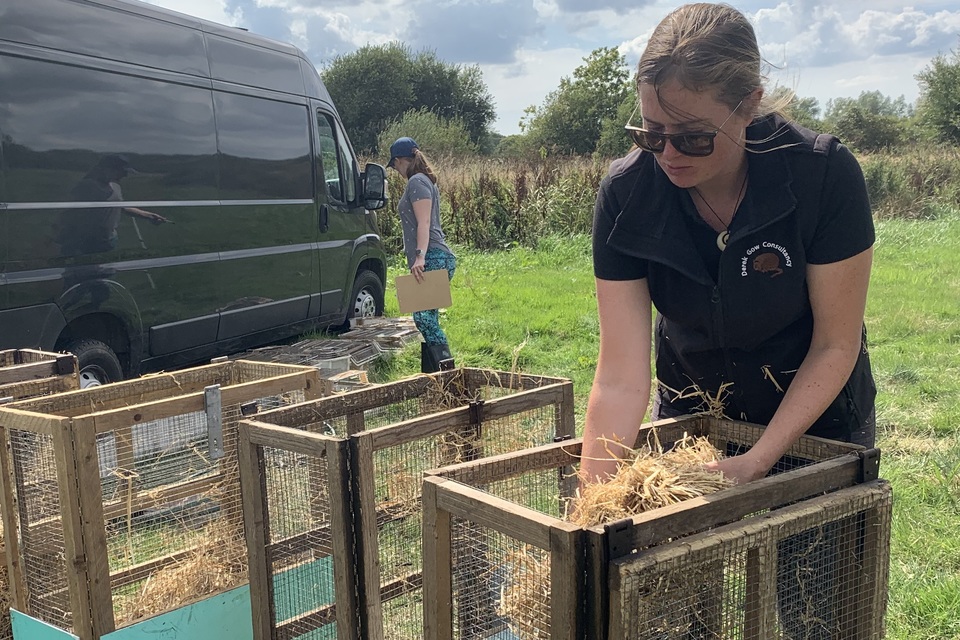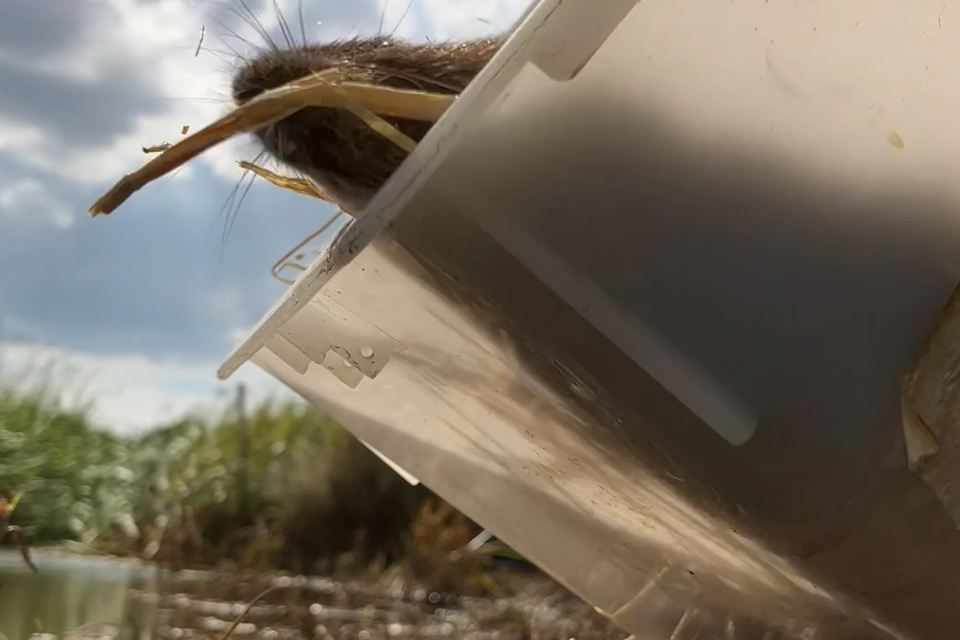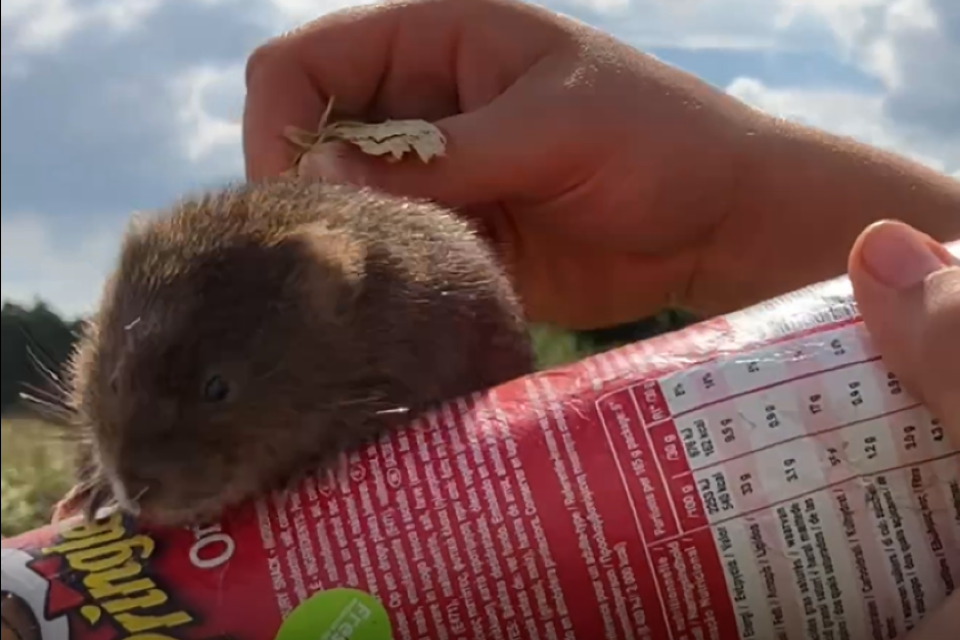Salisbury's most eligible bachelors and bachelorettes have been moved to an exotic location and will meet 50 potential lifemates with hopes romance will happen.
But this is more 'Vole Island' than 'Love Island'. And instead of a sun-kissed location in Spain, a dozen water voles from Salisbury have been living on a farm in Ringwood for the past 5 months. They swapped city life for the country before construction started on the Salisbury River Park flood defence and regeneration scheme. Now everyone hopes they will find true love when they meet 50 new bachelors and bachelorettes that were bred in captivity.
The water vole population in Ringwood was severely affected by mink in the past. But with the mink population now in control, in time it is hoped the water voles will breed once they get past their territorial instincts.
Mike Porter of the Environment Agency said:
One of the Salisbury River Park's aims, aside from reducing flood risk and regeneration, is to improve the environment for biodiversity.
So it is very encouraging to see that spill over to this location where the voles are healthy and happy in their new forever home and, in time, will grow in numbers and spread afield.

'Release pens' are wooden cages that the water voles will live in until they get used to their new environment and explore
Water voles are a legally protected species and also Britain's fastest declining mammal. A small population was found during survey work for the Salisbury River Park scheme. The scheme will deliver long-term benefits through habitat improvements for city wildlife, including water voles. However, a small number had to be were moved prior to construction. The scheme is providing ideal habitat for water voles and it is expected that the works area will be colonised quite quickly by voles from neighbouring populations.
Cllr Dr Mark McClelland, Cabinet Member for Waste, Street Scene and Flooding at Wiltshire Council, said:
One of our priorities is for Wiltshire's natural beauty and environment to be protected and maintained whilst improving the natural and built environment and enhancing the city flood defences.
The unique habitats, landscape and wildlife play a key part in the county's visitor economy and the wellbeing of our residents. The translocation of the voles was a vital part of the project to help maintain the local vole population in this part of the river. We look forward to seeing them around the site again in the future.
The Salisbury River Park project is a collaboration between the Environment Agency, Wiltshire Council, Salisbury City Council and Swindon and Wiltshire Local Enterprise Partnership. But moving water voles to another part of the Avon catchment, along with boosting their numbers, needed extra help and advice from Atkins, the Game & Wildlife Conservation Trust and Derek Gow Consultancy.
The Game & Wildlife Conservation Trust has been working with the private landowner on this site to improve the habitat ready for the voles. These habitat improvements will also benefit a whole range of other water meadow species in the Avon Valley, including threatened wading birds and invertebrates.

Some of the water voles didn't need release pens and couldn't wait to dive into the nearest watercourse
Jim Girgis, associate ecologist at Atkins, said:
This translocation would enable the population to thrive in suitable habitat as well as aid in restoring key links between known populations in the Lower and Upper Avon.
This is a really important project in terms of supporting the indigenous population of water vole in this area, which bring great benefits to the local eco-system, and it's also another good example of ensuring the best possible outcome both for the scheme and sustainability of the local environment.

Water voles were carefully removed from their transport cages to their release pens
The Salisbury River Park is a £27 million transformational scheme to reduce flood risk to over 350 homes and businesses in Salisbury. It will also create 2 hectares of enhanced riverside habitat for the benefit of wildlife, remove obstructions to allow fish migration to continue upstream and create 13 hectares of high quality public open space. Another benefit will be enhanced foot and cycle paths that benefit residents and visitors.
Construction began in July 2022 and it is expected main construction works will be completed in spring 2024.
You can follow the project's progress at www.salisburyriverparkphase1.com.






